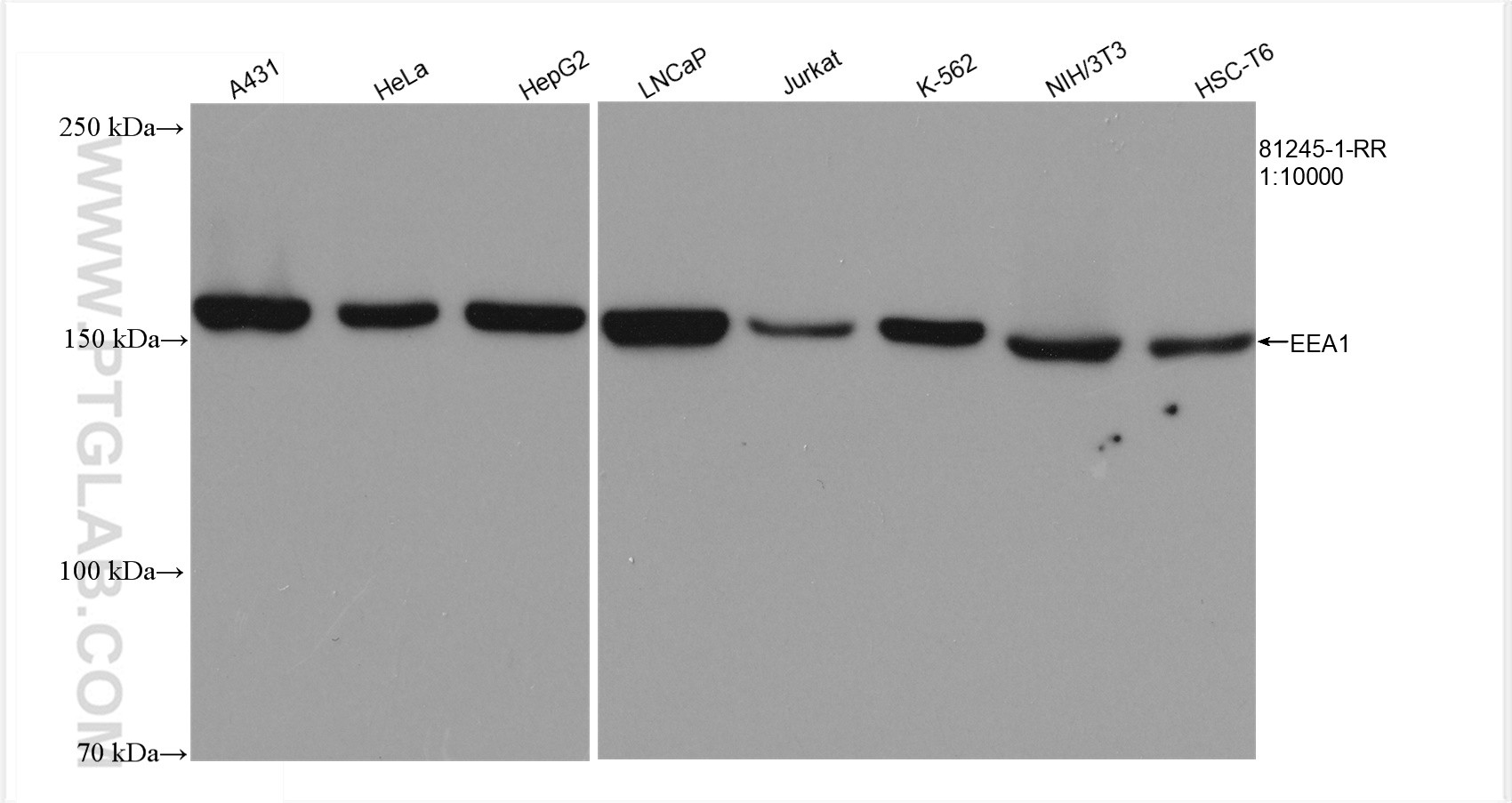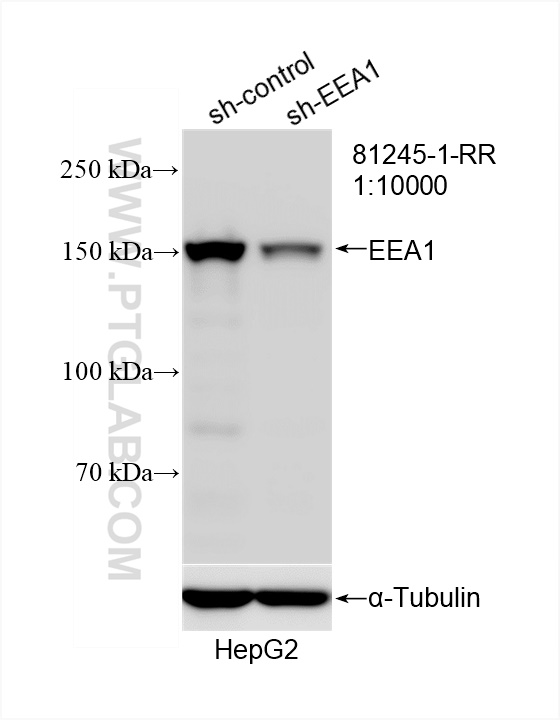验证数据展示
经过测试的应用
| Positive WB detected in | A431 cells, HepG2 cells, HeLa cells, LNCaP cells, Jurkat cells, K-562 cells, NIH/3T3 cells, HSC-T6 cells |
推荐稀释比
| 应用 | 推荐稀释比 |
|---|---|
| Western Blot (WB) | WB : 1:5000-1:50000 |
| It is recommended that this reagent should be titrated in each testing system to obtain optimal results. | |
| Sample-dependent, Check data in validation data gallery. | |
产品信息
81245-1-RR targets EEA1 in WB, ELISA applications and shows reactivity with Human, Mouse, Rat samples.
| 经测试应用 | WB, ELISA Application Description |
| 经测试反应性 | Human, Mouse, Rat |
| 免疫原 | EEA1 fusion protein Ag28814 种属同源性预测 |
| 宿主/亚型 | Rabbit / IgG |
| 抗体类别 | Recombinant |
| 产品类型 | Antibody |
| 全称 | early endosome antigen 1 |
| 别名 | ZFYVE2, MSTP105, MST105, Endosome-associated protein p162, Early endosome antigen 1 |
| 计算分子量 | 162 kDa |
| 观测分子量 | 162 kDa |
| GenBank蛋白编号 | NM_003566 |
| 基因名称 | EEA1 |
| Gene ID (NCBI) | 8411 |
| RRID | AB_2923711 |
| 偶联类型 | Unconjugated |
| 形式 | Liquid |
| 纯化方式 | Protein A purification |
| UNIPROT ID | Q15075 |
| 储存缓冲液 | PBS with 0.02% sodium azide and 50% glycerol , pH 7.3 |
| 储存条件 | Store at -20°C. Stable for one year after shipment. Aliquoting is unnecessary for -20oC storage. |
背景介绍
Early endosome antigen 1 (EEA1) is a marker of early endosomes and has an important role in endosomal trafficking. EEA1 contains coiled-coil regions and an FYVE-type zinc finger which interacts with phosphatidylinositol-3-phosphate. EEA1 functions as a Rab5 effector, mediates endosome docking and, together with SNAREs, leads to membrane fusion.
实验方案
| Product Specific Protocols | |
|---|---|
| WB protocol for EEA1 antibody 81245-1-RR | Download protocol |
| Standard Protocols | |
|---|---|
| Click here to view our Standard Protocols |


